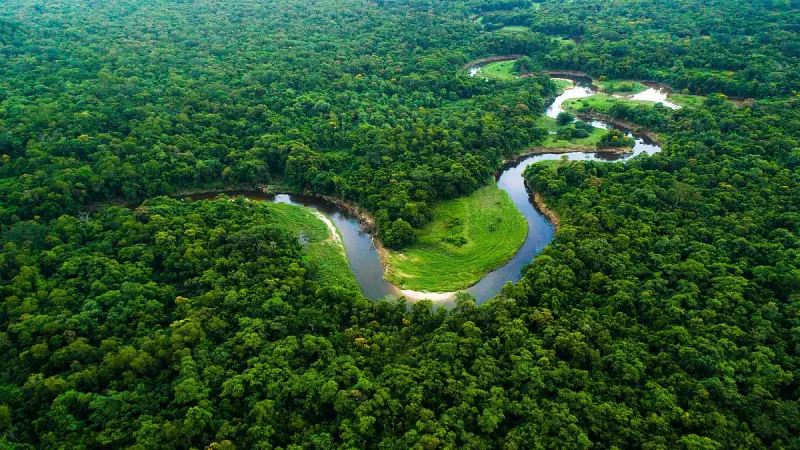
A startling new revelation is shaking the foundations of climate science: the very forests we depend on to combat global warming are becoming less effective at their job. Recent research indicates that climate change itself is severely compromising forests' ability to absorb carbon dioxide, creating a dangerous feedback loop that could accelerate planetary heating.
The Fading Green Shield
Forests have long been humanity's most powerful natural ally against climate change, acting as massive carbon sinks that absorb approximately one-third of human-generated CO2 emissions annually. However, this critical function is now under threat from the very phenomenon forests help mitigate.
What the Science Reveals
Multiple studies across different forest ecosystems show consistent patterns of declining carbon absorption capacity. The primary culprits include:
- Increased tree mortality due to rising temperatures and drought stress
- More frequent and intense wildfires that release stored carbon
- Pest infestations and diseases thriving in warmer conditions
- Changes in growth patterns affecting overall carbon storage
Global Implications for Climate Goals
This declining efficiency threatens to undermine international climate agreements and could significantly hamper efforts to limit global warming to 1.5°C above pre-industrial levels. As forests absorb less carbon, more emissions remain in the atmosphere, potentially creating a vicious cycle of accelerating climate change.
The Indian Context
For India, with its ambitious climate commitments and significant forest cover, these findings carry particular weight. The country's diverse forest ecosystems – from Himalayan temperate forests to Western Ghats tropical forests – face unique challenges that require tailored conservation strategies.
Beyond Traditional Conservation
Experts emphasize that simply protecting existing forests is no longer sufficient. The new reality demands:
- Enhanced forest management that considers climate resilience
- Diversification of tree species to withstand changing conditions
- Integration of scientific research into policy decisions
- Community involvement in forest conservation efforts
A Call for Urgent Action
The window for effective action is narrowing rapidly. Policymakers, scientists, and communities must collaborate to develop strategies that not only protect existing forests but also enhance their ability to function in a changing climate. This includes exploring assisted migration of tree species, developing early warning systems for forest stress, and investing in research to identify the most resilient forest management practices.
The message is clear: our forests need help to continue helping us. The time to act is now, before this critical climate buffer deteriorates beyond repair.





